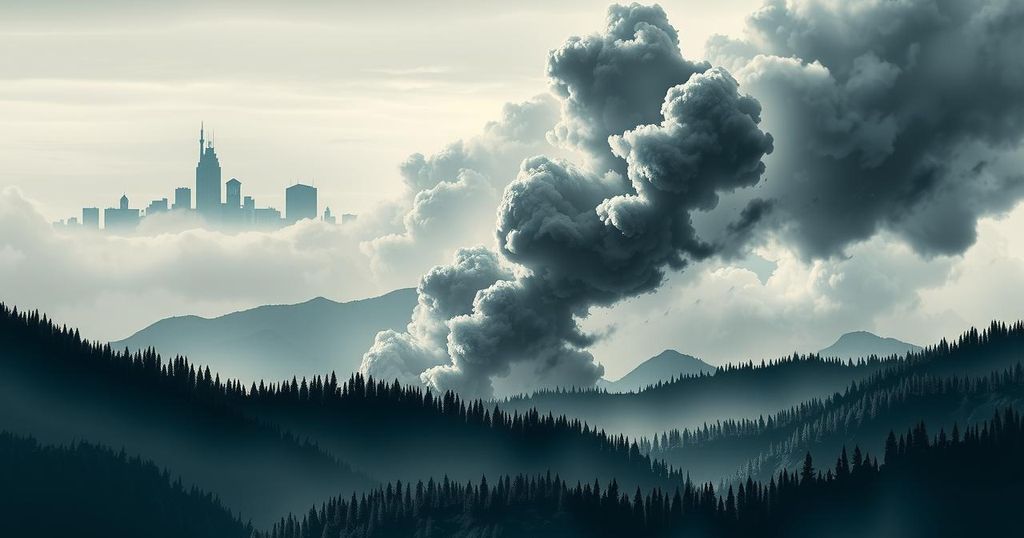The M23 rebels have captured Goma, escalating the DRC’s conflict and raising humanitarian concerns. Their rapid advance is rooted in longstanding ethnic divisions, with accusations of Rwandan support for the M23 exacerbating tensions. The capture poses significant implications for regional stability and highlights the urgent need for diplomatic interventions to achieve a sustainable resolution.
In a significant escalation of the conflict in the eastern Democratic Republic of the Congo (DRC), rebels from the March 23 Movement (M23) have taken control of Goma, the capital of North Kivu province. Since their takeover on January 27, at least 773 fatalities have been reported, with the M23 advancing into other towns such as Sake and Minova, and positioning themselves towards Bukavu, the South Kivu capital.
The M23’s rapid advance has surprised many, capturing Goma, a city of two million, within three days. The roots of this conflict can be traced back to ethnic tensions that emerged following the Rwandan genocide in 1994. The M23 advocates for the rights and protection of Congolese Tutsis, who face persecution from both state and non-state actors such as the Democratic Forces for the Liberation of Rwanda (FDLR).
The successful seizure of Goma bears significant implications, primarily as it provides the M23 with strategic control over North Kivu, an area rich in valuable minerals like coltan. Acquiring Rubaya, a mining town that contributes significantly to global coltan production, has allowed the M23 to generate substantial revenue from mineral extraction and trade within a profit-driven agenda, raising concerns about the group’s motivations and intentions.
Furthermore, the capture has intensified tensions between the DRC and Rwanda, with accusations from Congolese officials alleging Rwandan troop support for the M23. A UN report indicated Rwanda’s backing and military command over M23 operations, despite Rwandan denials, further complicating the relationship between the two nations and raising fears of a potential inter-state conflict.
The growing conflict poses severe humanitarian challenges, as evidenced by UN statistics showing over 7.2 million internally displaced persons within the DRC. Many civilians in eastern DRC now face severe food insecurity, exacerbating an already dire situation and underscoring the urgent need for international intervention and support to alleviate human suffering.
Historically, the DRC has faced two previous wars involving Rwanda, driven by attempts to address threats from anti-Rwandan rebel factions in Congolese territory. Although previous ceasefire agreements facilitated through international mediation hold the promise of peace, they often falter amid violations from both parties. Given the intensifying situation, diplomatic efforts must be employed to restore stability.
The Democratic Republic of the Congo is currently engulfed in a conflict largely fueled by ethnic divisions stemming from the aftermath of the 1994 Rwandan genocide. The M23, which emerged in 2012, aims to protect the Congolese Tutsi population against ongoing discrimination and violence from various groups in the region. Control of Goma and its mineral resources by the M23 underscores the complex interplay between local power struggles and external influences, particularly from Rwanda, that continually shape this conflict’s trajectory. This setting is pivotal, as it forms the backdrop for potential escalations that might affect not only the DRC but the wider region.
The capture of Goma by the M23 has re-ignited tensions in the eastern DRC and raised alarms about a potential inter-state war with Rwanda. As the humanitarian crisis deepens, the need for international intervention becomes increasingly urgent. A ceasefire must not only restore peace but also address the underlying ethnic tensions that drive the conflict. The situation remains precarious, with the international community focusing on stabilizing the region while encouraging diplomatic solutions to foster lasting peace.
Original Source: theconversation.com






